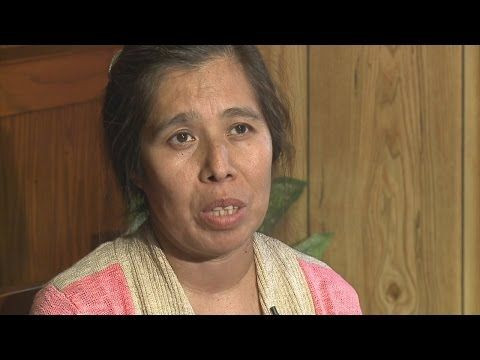Undocumented Immigrant Says Status Is Holding Her Back From Life-Saving Organ Transplant

Socorro Neri Vergara, 42, is a mother of three children, an undocumented immigrant, and trying to raise enough money to pay for a life-saving kidney transplant. Two years ago, Vergara underwent a routine physical, only to find her blood pressure was alarmingly high. She was later diagnosed with severe kidney failure.
Vergara said the first day the specialist looked at her file, she was told she was in very poor health and in an advanced stage of the disease. She had six months to a year to live.
"I was scared because I thought that my children are young and still need their mother so much," Vergara said on her fundraising page.
"I worry for my daughter," Vergara’s husband Francisco Bautista said of his oldest child. "[She's] upset by the situation. It's very hard for her to understand why nobody wants to help us."
Vergara has been an undocumented immigrant since 1998 and has been able to get treatment and dialysis for her kidney failure covered under the federally-funded Emergency Medical Assistance (EMA) program. The public health care program is designed for non-American citizens to pay for emergency medical conditions, but even if a recipient needs one, EMA cannot cover organ transplants.
Today, there are currently 122,403 people waiting for live-saving organ transplants in the United States. Of those, 101,189 are waiting for kidney transplants. According to the National Kidney Foundation, the average wait for a first-time kidney transplant recipient is 3.6 years. Every month, an additional 3,000 new patients are added to that waiting list.
The nonprofit organization that manages American’s organ transplant system United Network for Organ Sharing (UNOS), allows undocumented immigrants to be eligible for a transplant upon approval from the medical center. Doctors look at multiple factors before committing to surgery for a particular patient. However, Vergara and her family will be responsible for the transplant costs, which can run up a bill of approximately $262,900.
"What does play a part is whether or not you can take an organ if you get it," UNOS spokeswoman Anne Paschke told ABC News. "The transplant team looks at all of the medical and psychosocial things they learned about that patient. Situations that arise from being an immigrant and not being able to pay can contribute [to not being listed]. It's individual for each person."
Published by Medicaldaily.com



























